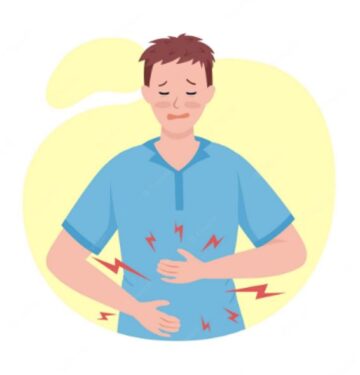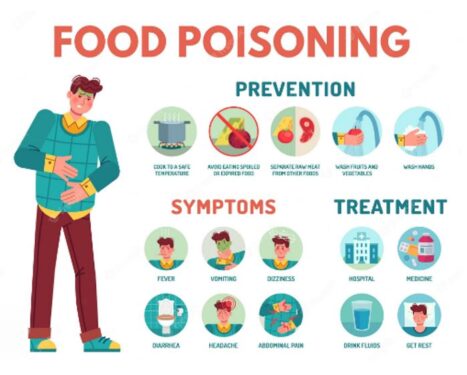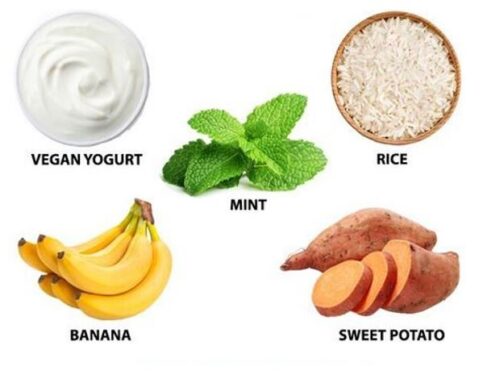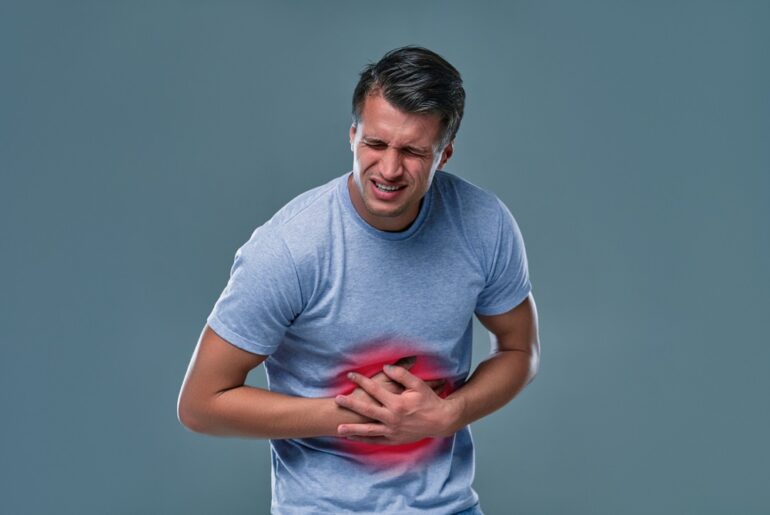Stomach ache is a common issue today as dietary habits are shifting from homemade food to junk items. Moreover, people have become busier than ever to take time for lunch and dinner during busy hours. This has led to a pattern of grabbing the easily available meal and satisfying hunger without focusing on its repercussions. The decline in the use of fruits, fibrous foods, and clean water has increased the occurrence of many health problems, among which the most commonly occurring issue is abdominal issues, particularly stomach aches. Let us take a look at the causes of stomach pain and its treatment options.

Stomach ache
Symptoms and causes of stomach pain
Apart from the pain in the stomach, other symptoms may also indicate a problem related to the gastric cavity. The following symptoms, if experienced, can indicate the corresponding conditions:
| Symptoms | Possible condition |
| Loose motion, vomiting, nausea | Food poisoning or a stomach bug/gastroenteritis |
| Bleeding via the anal route | Stomach ulcer |
| Inability to pass stool | Constipation |
| Pain with cramps | Period pain |
| Cramps, bloating, constipation, or diarrhea | Irritable bowel syndrome (IBS) |
| Bloating, heartburn, nausea | Indigestion |
| Bloating and farting | Flatulence |
Additional factors which may result in bad stomach pain are as follows:
- Digestive issues
- Infection
- Injury
- Presence of a disease
When should I be concerned?
If you keep on feeling stomach ache after eating or experience stomach cramps, your body might be sending you a signal for the presence of any of the following disease states:
- Gastroenteritis: Gastroenteritis is the inflammation of the stomach as well as the intestines. It is usually caused due to a bacterial infection or viral transmission.
- Food poisoning: Food poisoning is caused when a toxin is ingested along with food. These toxins are produced in the food products by the bacteria residing in them e.g. it is common to get food poisoning after eating raw or improperly cooked meat as it provides a habitable environment for the bacteria to multiply.

Symptoms and treatment of food poisoning
- Irritable bowel syndrome: If your stomach hurts after eating, it manifests the presence of irritable bowel syndrome or IBS. It is a condition characterized by pain and modified bowel movement which is accompanied by diarrhea or constipation. The causative agents of the IBS are certain viruses and bacteria.
- Gastric ulcer: Gastric ulcer is the ulceration of the walls of the gastric cavity. It results due to the hyperactivation of pepsin and increased concentration of hydrochloric acid in the stomach.
- Gastro-esophageal reflux disease: If you experience constant stomach pain for days, gastroesophageal reflux disease (GORD) might be the reason. It is indicated by the burning sensation and pain which starts from the breastbone and progresses towards the other abdominal tissues.
When to see a physician?
It is time to visit your physician if:
- The stomach pain does not subside after a few hours
- Sudden and unexplained weight loss
- Persistent vomiting
- Constant bloating
- Swallowing difficulties
- Anal or vaginal bleeding
- Frequent urination
- Discharge of blood in the urine
- Frequent diarrhea
- Discharge of blood in the feces
- Pain while passing urine
- Abdominal swelling
How to diagnose the cause of stomach ache?
To correctly diagnose the reason behind a sharp pain in the stomach, the following tests may be run upon the physician’s recommendation:
- Blood tests
- Ultrasound
- Gastroscopy
- X-rays
- CT-scan
Treatment options
To treat the pain in stomach, the following strategy should be adopted:
- If the stomach ache is mild, it may go away within a few hours and there is no need to take medications.
- If the pain does not subside easily but remains mild, the following changes regarding your diet might help:
- Drinking a lot of water to stay hydrated
- Eliminating alcohol, tea, or coffee from your diet
- Employing a hot water bottle at the point of ache
- Avoiding foods that are hard to digest and replacing them with softer foods
- Addition of ginger, apple cider vinegar, chamomile tea, and peppermint tea to your diet
- Shifting to a BRAT diet which includes the use of banana, rice, apple sauce, and toast.

Best foods for an upset stomach
- The use of over-the-counter antacids like simethicone or gas-reducing medication such as charcoal products may prove to be useful to manage flatulence.
- The use of antispasmodic drugs helps with easing severe muscle cramps.
- Other treatment options include:
- Antidiarrheal drugs
- Laxatives
- Antibiotics
If the pain does not subside after doing basic remedies, immediately contact your healthcare provider. Do not use any drug without consulting a general physician or a pharmacist.
Caution
The use of anti-inflammatory medications as well as aspirin is prohibited in case of any time of abdominal pain with the exception of pain associated with periods. This is due to their property to cause stomach irritation and increase the discomfort instead of reducing it.
How to prevent stomach aches?
Mild to severe stomach pain is avoidable by modifying your diet and lifestyle. These changes include:
- Eating a balanced diet
- Addition of fiber to your diet
- Avoiding fizzy drinks
- Reducing the consumption of alcohol
Conclusion
Have you ever wondered, ‘Why does my stomach hurt after I eat something?’ The answer lies in the presence of a mild to severe stomach ache which can happen due to multiple reasons. Usually, stomach pain is a self-healing condition. If you wait for a few hours, take in some good foods, and avoid caffeine, it subsides quickly. If not, it may be an indication of a severe health issue. At this point, you should visit your healthcare provider. However, stomach aches and the associated health issues are largely avoidable with simple dietary modifications which not only decrease the chances of an ailment but also improve the quality of life.

PhD Scholar (Pharmaceutics), MPhil (Pharmaceutics), Pharm D, B. Sc.
Uzma Zafar is a dedicated and highly motivated pharmaceutical professional currently pursuing her PhD in Pharmaceutics at the Punjab University College of Pharmacy, University of the Punjab. With a comprehensive academic and research background, Uzma has consistently excelled in her studies, securing first division throughout her educational journey.
Uzma’s passion for the pharmaceutical field is evident from her active engagement during her Doctor of Pharmacy (Pharm.D) program, where she not only mastered industrial techniques and clinical case studies but also delved into marketing strategies and management skills.
Throughout her career, Uzma has actively contributed to the pharmaceutical sciences, with specific research on suspension formulation and Hepatitis C risk factors and side effects. Additionally, Uzma has lent her expertise to review and fact-check articles for the Health Supply 770 blog, ensuring the accuracy and reliability of the information presented.
As she continues her PhD, expected to complete in 2025, Uzma is eager to contribute further to the field by combining her deep knowledge of pharmaceutics with real-world applications to meet global professional standards and challenges.








